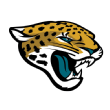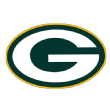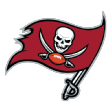Eagles fans booed their team off the field at halftime of Sunday night's loss to the Cowboys, approximately nine months after many of the men receiving the boos delivered the boo-ers the greatest sporting thrill of their lifetimes.
I have never understood this, personally. Even when I was a rooting fan with a vested interest in the successes and failures of specific teams, I never agreed with the idea of booing the team you love for poor play. For lack of effort, maybe, or for some kind of classless on-field behavior. But for playing poorly or losing? Why? It's not as if they don't realize they're losing and your booing will alert them to the fact. It's not as if you want them to win more than they want to win themselves. Booing your own team always strikes me as kind of antithetical to the fan experience. And, yes, I find it even more puzzling when you're booing the people who won your team its first and only Super Bowl.
But understand: This isn't a lecture. It's just the way I feel. I've heard the counterarguments, and I understand that a lot of fans consider this a fundamental right of fandom: the right (obligation?) to show displeasure when your team disappoints. I'm not saying I'm right and those who boo are wrong -- just that it never made a lot of sense in my own head, where I acknowledge a lot of things don't make sense.
Regardless of where you land on this, we can agree that the booing Sunday night in Philadelphia was the result of deep disappointment. That's why it was the inspiration for this week's column, which takes a look at the three most disappointing teams of the 2018 NFL season so far. We begin with the defending Super Bowl champs.

Philadelphia Eagles
This year's Eagles weren't supposed to be 4-5 and losing to the Cowboys in Week 10. They were supposed to be the team that bucked all of the daunting recent history, repeating not only as NFC East champions but maybe also as Super Bowl champions. They won the thing, after all, without their starting quarterback and left tackle. They had every reason to believe they could be even better this season.
They are not. They're tied for second with Dallas, two games behind first-place Washington in the division. They're a middle-of-the-pack team on offense and on defense. Their secondary is shredded by injuries, and they haven't been able to put games away with their pass rush in the fourth quarter the way they did last season. Statistically, it's tough to find too many stark differences between where the Eagles were last year and where they are this year. But when you look at plays that make the difference in close games over a long season, it's easier to spot.
Last year, the Eagles were second in the league (behind the Bills, somehow) in third-down conversions and first in fourth-down conversions. This year, they're 11th in third-down conversions and tied for fourth (with five other teams) in fourth-down conversions. Last year, they ranked first in red zone efficiency, converting 65.5 percent of their red zone drives into touchdowns. This year, they're 17th in that category, at 55.9 percent. In the fourth quarter and overtime this year, the Eagles are converting 34.4 percent of their third downs, which ranks 20th in the league. Last year, that number was 40.3, tied for eighth.
The Eagles aren't a bad team, but they've lost a little bit of last year's ability to make the exceptional play at the critical time. That makes them more like the rest of the teams in the league, but they have time to turn it around and two games left against Washington to help them make up the deficit. As with the other two teams on our list, it isn't yet over for Philly. The Eagles just need to start looking more like the 2017 version of themselves if they're going to make a repeat run.

Jacksonville Jaguars
This team, which held a fourth-quarter lead on the Patriots in the AFC Championship Game in January and started this season 3-1, has lost its past five games and sits in last place in an AFC South it was favored by many to win. The Jaguars' 319.1 yards per game allowed on defense still ranks third in the league, but that's way up from last year's 286.1. What's worse, during their current losing streak, the Jaguars are allowing 367 yards per game, which ranks 18th in the league. Jacksonville opponents are converting 47.1 percent of their third downs during the streak. Only the Raiders, Falcons and Bengals have allowed a higher third-down conversion percentage on defense since Week 4.
Blake Bortles is a lightning rod, but the Jaguars' passing game hasn't been a perceptibly bigger problem this season than it was last. The team's interception rates are exactly the same, and Bortles is on pace to throw 14 interceptions. He threw 13 last season, and his career average is 16. The Jaguars turned over the ball just 23 times last season and have done so 19 times already this year, but a league-leading 10 of those 2018 turnovers have been lost fumbles. They lost 10 all of last season.
No, the problem with Jacksonville is that last season's formula hasn't carried over. Last year, the Jags won with stifling defense and a grind-you-down running game. Last year's Jaguars ranked third in the league in time of possession, at 32:19 per game. This year's Jaguars rank 24th, at 29:36. Last year's Jaguars led the league with a whopping 141.4 rushing yards per game. This year, they're 26th, with 94.6.
The absence of running back Leonard Fournette, who has missed six games because of injuries, has a lot to do with this, obviously. But Fournette returned Sunday, and the Jags still gave up 366 yards in a 29-26 loss to the Colts. You saw a return to some of the old formula, as Jacksonville possessed the ball for 35:10, and the defense pitched a shutout in the second half. But the team got behind by 16 points early, and not even last year's Jags were built to come back from that.

Green Bay Packers
The Willis Reed impression Aaron Rodgers pulled in Week 1 fed right into the offseason narrative that Rodgers' return would vault the Packers right back into Super Bowl contention. It has not. The Packers sit at 4-4-1 and have yet to win two games in a row this season. Following Sunday's home victory over the Dolphins, the Packers play the Seahawks on Thursday in Seattle in something close to an elimination game for both teams.
Green Bay's problem has been the road. The Packers are 0-4 away from Lambeau Field. While a lot of that has to do with a road schedule that has included Washington, the Rams and the Patriots, it isn't about to get much easier. The Packers' next three road games are in Seattle, Minnesota and Chicago, and they have only three home games left. If Rodgers is going to go on one of his patented "run-the-table" second-half streaks, he's going to have to do it in some pretty tough places to play. To this point in 2018, the Packers' act simply hasn't traveled well.
A couple of other things we learned in Week 10:

Dirk Koetter is in an impossible spot
There's basically nothing the embattled Tampa Bay Buccaneers coach can do at this point. He fired defensive coordinator Mike Smith after Week 6, and Tampa Bay is 29th in scoring defense since. He benched quarterback Jameis Winston after Week 8, and the Bucs have turned over the ball a league-leading six times in the two weeks since. On Sunday, in a home game, they outgained Washington 501 yards to 286, possessed the ball for 31:12, picked up 29 first downs to their opponent's 15 ... and lost 16-3. That's 501 yards and only three points! That's borderline impossible.
On Monday, the Bucs cut kicker Chandler Catanzaro, who missed two field goals in the 13-point loss.
This is all just rearranging deck chairs on the Titanic, and at this point, Koetter is out of moves. He's going to keep starting Ryan Fitzpatrick at quarterback because, at this point, he believes it gives his team the best chance to win. At 3-6, silly as it might sound, that is the right thing to do. Technically, Tampa Bay could still win all of its remaining games, get to 10-6 and maybe snag a playoff spot. I'm not saying this will happen, but it's a coach's and team's responsibility to keep trying at least until it truly doesn't matter anymore.
The quarterback situation in particular has made this an impossible season for Koetter to navigate. Both guys turn the ball over a ton. The organization is going to want another look at Winston before the season is up, to determine the best course of action for them and him in 2019 and beyond, when Koetter almost certainly won't be the coach.
My understanding is that the Bucs do not plan to make a change at head coach during the season, in part because ownership doesn't like to do that and in part because there's no obvious candidate on the staff with prior head-coaching experience (like Mike Smith!) who could take over and guide this season to the finish line. (Don't laugh at the latter. It's a legitimate concern for team owners and one of the key reasons keeping Todd Bowles employed with the Jets for the rest of the season.)
It's a tough slog to the finish for a coach who knows he's finished, but it always tells you something about a guy when he continues to do what's best for the organization, even if he doesn't expect to be part of it moving forward. You're still getting paid to do a job. The right thing is to do it, best you can. Koetter is going to keep trying to find solutions -- short-term and long-term -- for the Bucs as long as he's entrusted with that responsibility, no matter how impossible things get.
The NFLPA is gearing up
For the past several weeks, NFLPA executive director DeMaurice Smith and other union officials have been making their annual visits to teams. They visit each of the 32 teams every year, meeting with players to update them on various issues, including the collective bargaining agreement that expires after 2020. During these visits, teams elect their union representatives.
This year's crop of elected player reps has union officials excited because it has no shortage of stars -- particularly young ones. Todd Gurley is the Rams' player rep. Aaron Rodgers is the Packers' player rep. Jarvis Landry is the Browns' player rep. Adam Thielen is the Vikings' player rep, with Kirk Cousins as an alternate. Young quarterbacks Baker Mayfield (Browns), Patrick Mahomes (Chiefs), Sam Darnold (Jets) and Josh Rosen (Cardinals) are alternate reps for their respective teams.
Why does this matter? Historically, the reason NFL players haven't been able to stick together during labor negotiations and make the gains their MLB and NBA counterparts have made through the years is that they couldn't always get the big stars on board. The NFL has had player strikes, but they've tended to fall apart once the big-name, big-money guys decided they'd had enough of missing paychecks. From the union's standpoint, the fact that so many big-name guys are willing to take on leadership roles indicates a chance of that historical tide turning. The fact that star rookie quarterbacks are eager to get as involved as these guys are gives union leaders hope for strength into the future.
I don't know how the looming CBA fights will be resolved, but "quietly and peacefully" don't seem to be likely answers. One of the union's chief concerns in labor fights is keeping the players united. Their hope is that having as many "stars" on board as possible will help with that, whatever comes up when it comes time to negotiate.
